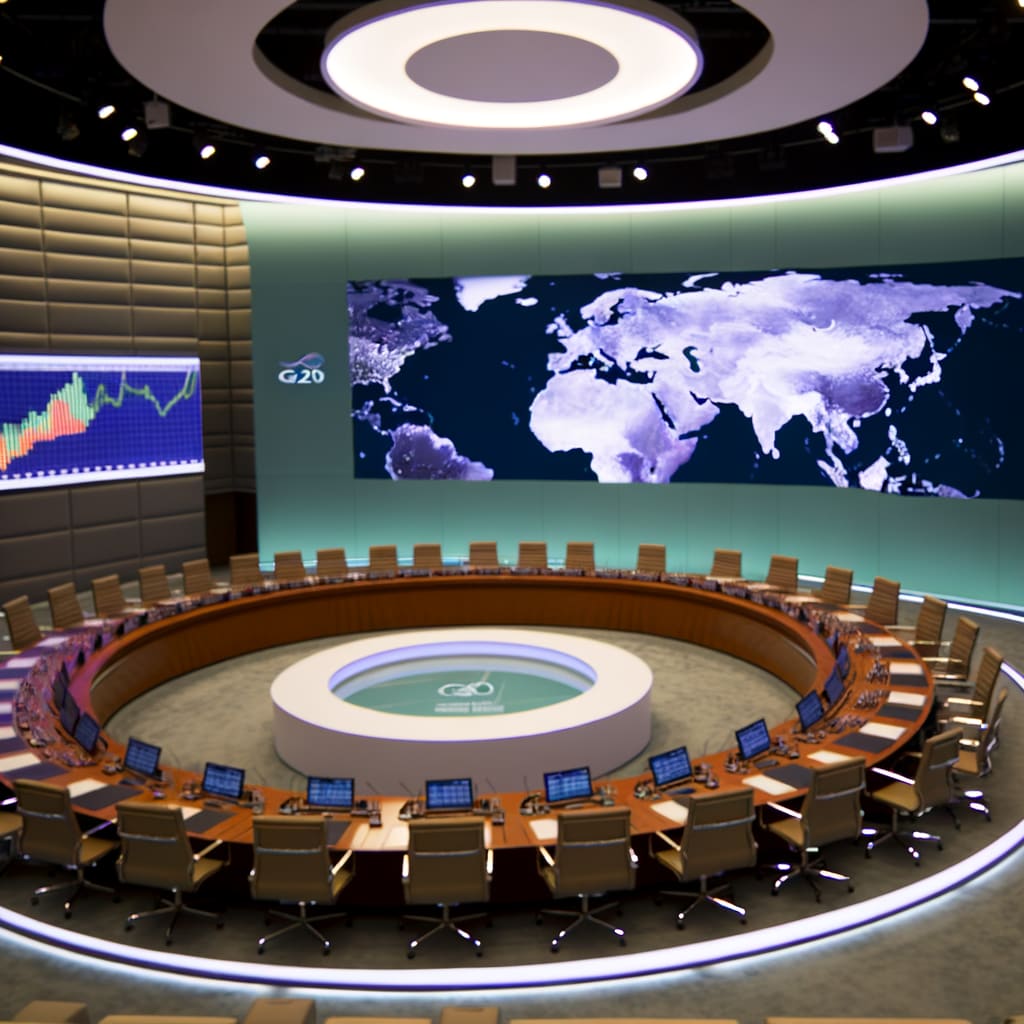G20 Fights for Global Economic Stability Amid US Boycott, Tariffs
In the wake of the United States' boycott of the recent G20 summit, leaders of the world's major economies have been grappling with the challenge of fixing a broken global economy,
with some adopting a tougher stance towards US President Donald Trump.
US Boycott and Global Response
Despite the absence of the US, South Africa successfully led the G20 summit, which sought to address pressing issues in the global economy, with the World Trade Organization (WTO) at the center of the discussions. In an unusual turn of events, the past four presidencies have been held by major economies of the Global South – Indonesia, India, Brazil, and South Africa. The rest of the world has deliberately avoided retaliatory measures that could fracture the global trading system, according to WTO director general Ngozi Okonjo-Iweala.
While the US sat out, other nations attempted to strike new deals and redefine global trade patterns. This G20 meeting has been tremendous because all the world leaders, one by one yesterday, mentioned the centrality of the world trading system and the WTO,
said Okonjo-Iweala.
Impact of US Tariffs
President Trump suggested that the full benefit
of US tariffs has not yet been realized because their impact has been blunted by stockpiles of goods amassed to avoid paying the tariffs. However, he suggested that these stockpiles are dwindling and the full force of tariffs will soon take hold, potentially generating massive revenue for the US.
China, a major player in the global economy, has been warned to prepare for stricter US-EU regulations on global rules of origin, as signaled in their recent trade deal. This could potentially impact China's export sector by reshaping global trade patterns.
The Road Ahead
The question of whether the world can progress without the US remains a topic of debate. However, G20 leaders have shown determination in fostering multilateralism, as exemplified by Chancellor Friedrich Merz's commitment to promoting this approach at the summit.
Despite the US' absence, the G20 summit has shown that the world is capable of maintaining unity around trade reform and striving towards a stable global economy. As South Africa hands over the G20 presidency, the world waits to see how the next leaders will continue to navigate these challenges.
The future global trade framework still remains uncertain, but G20 leaders' efforts to strike new agreements and the expected impact of US tariffs may soon redefine global economic dynamics. As the world grapples with potential economic fragmentation, the G20 summit has underscored the importance of international cooperation and multilateralism in ensuring global economic stability.

